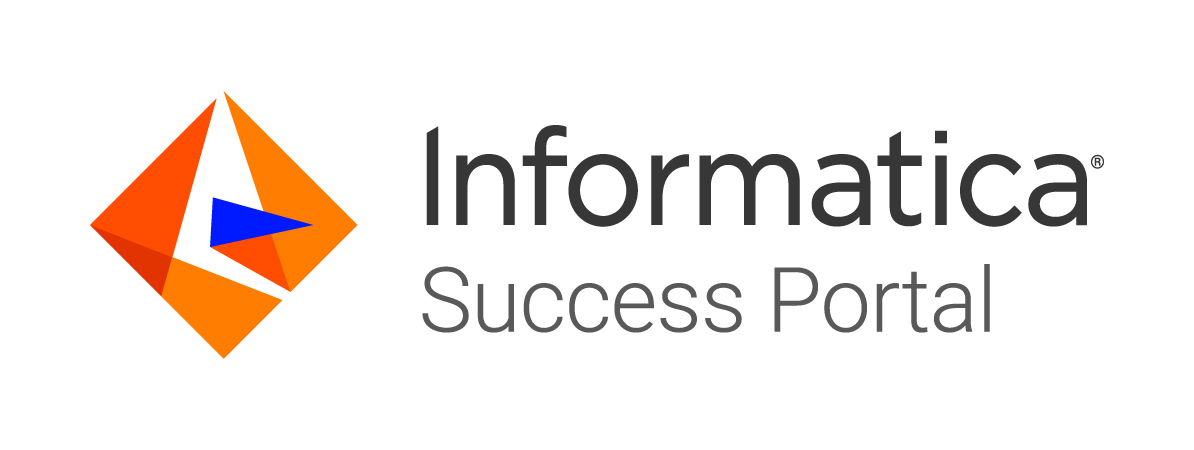-
Success
Manage your Success Plans and Engagements, gain key insights into your implementation journey, and collaborate with your CSMsSuccessAccelerate your Purchase to Value engaging with Informatica Architects for Customer SuccessAll your Engagements at one place
-
Communities
A collaborative platform to connect and grow with like-minded Informaticans across the globeCommunitiesConnect and collaborate with Informatica experts and championsHave a question? Start a Discussion and get immediate answers you are looking forCustomer-organized groups that meet online and in-person. Join today to network, share ideas, and get tips on how to get the most out of Informatica
-
Knowledge Center
Troubleshooting documents, product guides, how to videos, best practices, and moreKnowledge CenterOne-stop self-service portal for solutions, FAQs, Whitepapers, How Tos, Videos, and moreVideo channel for step-by-step instructions to use our products, best practices, troubleshooting tips, and much moreInformation library of the latest product documentsBest practices and use cases from the Implementation team
-
Learn
Rich resources to help you leverage full capabilities of our productsLearnRole-based training programs for the best ROIGet certified on Informatica products. Free, Foundation, or ProfessionalFree and unlimited modules based on your expertise level and journeySelf-guided, intuitive experience platform for outcome-focused product capabilities and use cases
-
Resources
Library of content to help you leverage the best of Informatica productsResourcesMost popular webinars on product architecture, best practices, and moreProduct Availability Matrix statements of Informatica productsMonthly support newsletterInformatica Support Guide and Statements, Quick Start Guides, and Cloud Product Description ScheduleEnd of Life statements of Informatica products
- Velocity
- Strategy
-
Solutions
-
Stages
Following a rigorous methodology is key to delivering customer satisfaction and expanding analytics use cases across the business.

-
More
-
Success
Manage your Success Plans and Engagements, gain key insights into your implementation journey, and collaborate with your CSMsAccelerate your Purchase to Value engaging with Informatica Architects for Customer SuccessAll your Engagements at one place
-
Communities
A collaborative platform to connect and grow with like-minded Informaticans across the globeConnect and collaborate with Informatica experts and championsHave a question? Start a Discussion and get immediate answers you are looking forCustomer-organized groups that meet online and in-person. Join today to network, share ideas, and get tips on how to get the most out of Informatica
-
Knowledge Center
Troubleshooting documents, product guides, how to videos, best practices, and moreOne-stop self-service portal for solutions, FAQs, Whitepapers, How Tos, Videos, and moreVideo channel for step-by-step instructions to use our products, best practices, troubleshooting tips, and much moreInformation library of the latest product documentsBest practices and use cases from the Implementation team
-
Learn
Rich resources to help you leverage full capabilities of our productsRole-based training programs for the best ROIGet certified on Informatica products. Free, Foundation, or ProfessionalFree and unlimited modules based on your expertise level and journeySelf-guided, intuitive experience platform for outcome-focused product capabilities and use cases
-
Resources
Library of content to help you leverage the best of Informatica productsMost popular webinars on product architecture, best practices, and moreProduct Availability Matrix statements of Informatica productsMonthly support newsletterInformatica Support Guide and Statements, Quick Start Guides, and Cloud Product Description ScheduleEnd of Life statements of Informatica products
-
Success
Enterprise Information Architect
The Enterprise Information Architect (EIA) has primary accountability for the delivery of high-quality data in support of enterprise projects and the data governance program. This role is accountable for Information Architecture activities including current state documentation, information strategy, enterprise data model, interface and service design, conceptual/logical Information Architecture (IA) project deliverables, System of Record determination, and analytical strategy. The EIA role is involved in research of business problems and potential solutions, in strategy and planning, in collaborating with Enterprise and Solution Architects on solution design, and in applying standards and data governance principles.
The Enterprise Information Architect role also assists in the development of the enterprise information vision and strategies and the Data Governance Program. The EAI is fluent in data modeling, data flow diagrams, and Unified Modeling Language.
Responsibilities
- Develop Information Strategy- create, modify, maintain a sound Information strategy to meet Enterprise needs and maximizes the value of data as an enterprise asset.
- Understand Business Needs- Understand and Align business and Information strategies and identify gaps and solutions to achieve objectives.
- Develop Information Solutions- Research, analyze, design, propose and deliver information solutions that are appropriate for the business and technology strategies.
- Create Information Framework- Lead Information architecture framework development and interfaces for a subject domain.
- Define Information Boundaries- Management of risks associated with information and IT assets through appropriate standards & security policies.
- Direct Data Standards- Develop and communicate data standards and provide leadership and/or representation to various data standards groups
- Establish Metadata and Governance Architecture -Define and development of data governance framework including use of tools like metadata management, business glossary, data profiling, data discovery, and related operations.
- Partner with Internal teams- Server as strategic partner for Enterprise and Solution Architects, Data Stewards and Business Analysts to understand and deliver information needs.
Qualifications/Certifications
- Hands on experience as an architecture practitioner with an ability to think broadly at a domain level.
- Working Experience and proficiency in Information Architecture, Data Architecture, Data Governance, Data Quality and Metadata management.
- Familiarity with the Data Management Association (DAMA) Data Management Body of Knowledge (DMBOK), Information Engineering methods, and related best practices.
- Working Experience in collaborating with Data Governance, Application Architecture, Integration Architecture, and Operations Management teams.
- Deep understanding and experience with strategies, technologies and tools in data modelling, profiling, quality management, performance, and delivery.
- Ability to connect business needs to the information requirements.
- Experience implementing solutions and working with vendors.
- Experience in influencing key decision makers to help shape technology strategy.
- Ability to balance tactical needs and business realities with strategic requirements.
- Strong Business Analysis and problem-solving skills.
- Excellent interpersonal skills and able to work effectively with all levels of management and staff.
